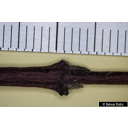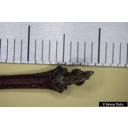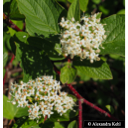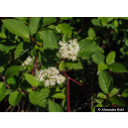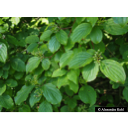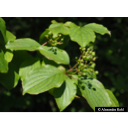Useful information about the taxon (species, subspecies, variety...)
Cornus sanguinea L. 1753
Cornaceae
(APG IV)Akzessionnummer: SP-KS-029-10574
Pflanzjahr: 2018
Taxon concept: The Plant List (2014), version 1.1
Cornus sanguinea L. - Accepted: Cornus sanguinea L. bei The Plant List (2010); Familie: Cornaceae (APG III)Cornus sanguinea L. - Accepted: Cornus sanguinea L. bei The Plant List (2014), version 1.1; Familie: Cornaceae (APG III)Cornus sanguinea L. - Accepted: Cornus sanguinea L. bei The Plant List (2010); Familie: Cornaceae (APG IV)Cornus sanguinea L. - Accepted: Cornus sanguinea L. bei Schmeil-Fitschen 2019; Familie: Cornaceae (APG IV)Cornus sanguinea L. - Accepted: Cornus sanguinea L. bei BfN Checklist Flora DE; Familie: Cornaceae (APG IV)Cornus sanguinea L. - Accepted: Cornus sanguinea L. bei World Flora Online - APG IV (Angiosperms); Familie: Cornaceae (World Flora Online - APG IV (Angiosperms))
- Color of flower
- white
- Life form
- woody, shrub
Bundesamt für Naturschutz (BfN) (1999-2001 and ongoing): Floraweb - Daten und Informationen zu Wildpflanzen und zur Vegetation Deutschlands. www.floraweb.de.; Danin, A. (2017): Flora of Israel Online. See: https://flora.org.il/en/plants/; Erhardt, W., Götz, E., Bödeker, N. & Seybold, S. (2008): Der große Zander. Enzyklopädie der Pflanzennamen. Band 2. Arten und Sorten. Eugen Ulmer KG, Stuttgart (Hohenheim), 18. Aufl., 2103 S.; Haider, M. et al. (2005): Wildbienenkataster. See: https://www.wildbienen-kataster.de; Jäger, E. (Hrsg.) (2011): Rothmaler - Exkursionsflora von Deutschland. Gefäßpflanzen: Grundband. Band 2. Springer Spektrum Verlag, 20., neu bearb. u. wesentl. erw. Aufl.: 944 S. 978-3-8274-1606-3.; Kämper, Wiebke et al. (2018): Flower visitation honeybee and bumblebee. See: https://www.bexis.uni-jena.de/ddm/data/Showdata/16086?version=2; Karl Hiller et al. (2010): Lexikon der Arzneipflanzen und Drogen.. Spektrum, Heidelberg, 2. Auflage 9783827420534.; Kew Gardens and Collaborators (2017): Plants of the World Online. see: plantsoftheworldonline.org.; Maurizio, Anna et al. (1982): Nektar und Pollen - die wichtigsten Nahrungsquellen der Honigbiene. 4. Ehrenwirth, München, 3, überabeitete Auflage; Ministerium für Ernährung, Landwirtschaft, Umwelt und Forsten, Baden-Württemberg (Hrsg.) (1985): Pflanzenkatalog zur Verbesserung der Bienenweide und des Artenreichtums (Kurztitel: Bienenweidekatalog); Oberdorfer, E. (2001): Pflanzensoziologische Exkursionsflora. Für Deutschland und angrenzende Gebiete. Eugen Ulmer Verlag, Stuttgart, 8., stark überarb. u. erg. Aufl, 1056 S. 978-3-8001-3131-0.; Parolly, G. et al. (2019): Schmeil-Fitschen: Die Flora Deutschlands und angrenzender Länder.. Quelle & Meyer Verlag, Wiebelsheim, 97. Aufl.; Parreno, Alejandra et al. (2025): Visitation records of bees in Germany (58 plots). See: https://www.bexis.uni-jena.de/ddm/data/Showdata/31131?version=12; Pritsch, Günter et al. (1985): Bienenweide.. Neumann-Neudamm, Melsungen; Pritsch, Günter et al. (2007): 200 Trachtpflanzen erkennen und bewerten.. Kosmos, Stuttgart; Schick, B. & Spürgin, A. (1997): Die Bienenweide. Eugen Ulmer Verlag, Stuttgart, Auflage: 4., völlig neubearb. u. erw. A., 216 S. 978-3800174188.; The International Plant Names Index (2009). Published on the Internet http://www.ipni.org; Courtesy to IPNI, 2009. Exported from IPNI at date: 2009-09-22 20:17:51; Werle, Susanne et al. (2015): ITS2 DNA metabarcoding of wild bee pollen loads, collected in 2020 and 2021 across all three exploratories. See: https://www.bexis.uni-jena.de/ddm/data/Showdata/31545?version=6; Westrich, P. et al. (2018): Die Wildbienen Deutschlands.. Ulmer Verlag ISBN 978-8186-0123-2.;
Diese Webseite verwendet Google Maps, um Karten und Standorte von Pflanzen in den Hohenheimer Gärten anzuzeigen. Dadurch werden unter Umständen Daten an Google weitergeleitet, was mit einer Verarbeitung Ihrer personenbezogenen Daten verbunden sein kann. Die Datenschutzerklärung von Google finden Sie hier: Datenschutzerklärung von Google

